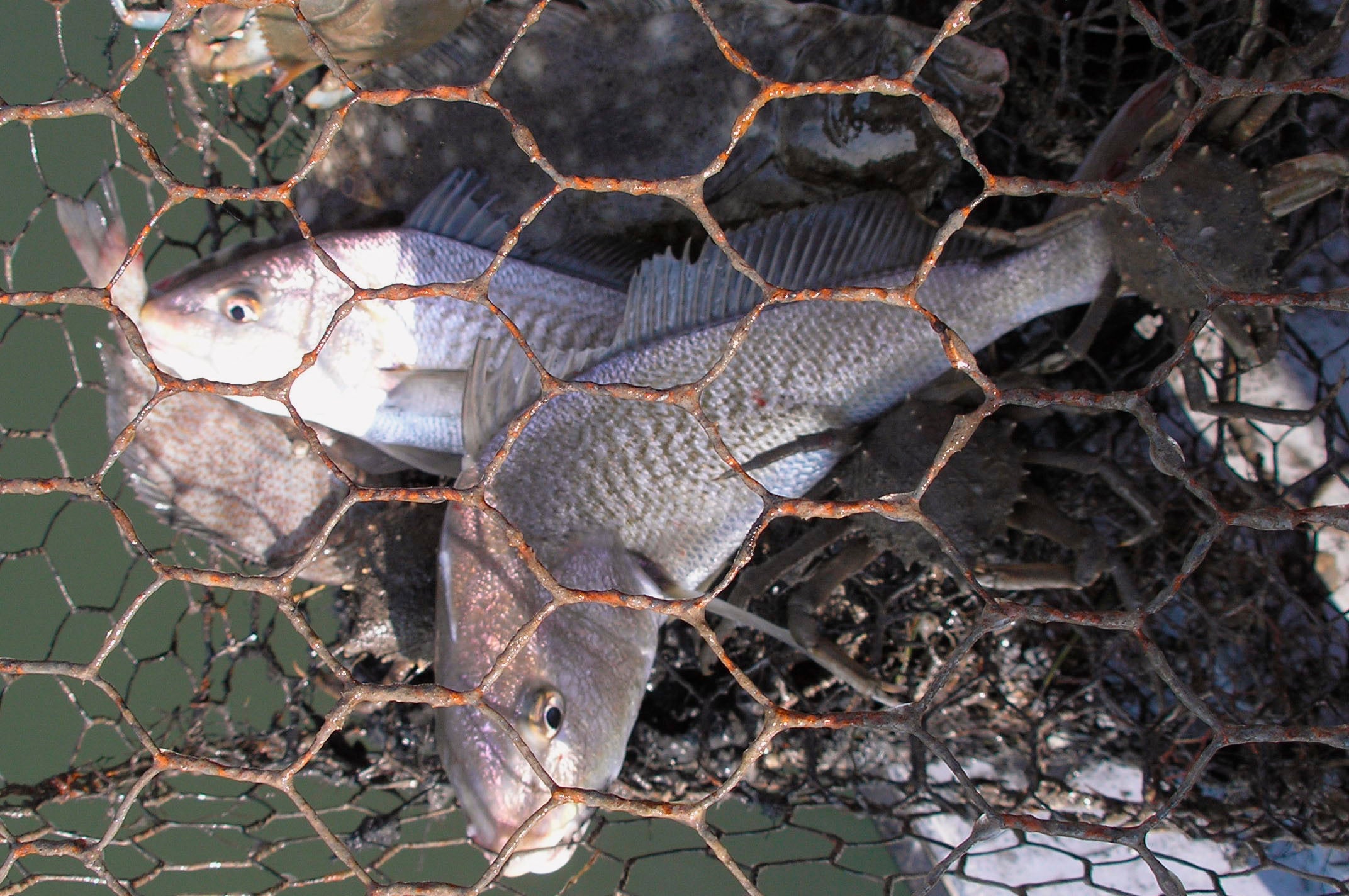NOAA funds derelict crab pot removal from Shore waterways

Abandoned crab pots unnecessarily trap fish and harm the marine ecosystem, according to the Conserve Wildlife Foundation of NJ. (Image: NOAA)
Scientists and volunteers will remove more than 1,000 abandoned crab pots from Jersey Shore tidal waterways thanks to a National Oceanic and Atmospheric Administration (NOAA) grant.
The Conserve Wildlife Foundation of New Jersey (CWF) and Stockton University are two of the 13 nationwide recipients of grants from NOAA’s Marine Debris Program, receiving $109,618 and $119,625, respectively.
The organizations will use the funds for both research and practical purposes.
CWF will identify and remove nearly 1,000 derelict crab pots in the Barnegat Bay, helping the organization to understand how much gear is lost annually by recreational and commercial crab fishermen, according to a NOAA release.
According to CWF, derelict crab pots “ghost fish,” unnecessarily trapping marine life.
Stockton University will survey and digitally map derelict crab traps located in the Mullica River-Great Bay Estuary and Greater Egg Harbor Estuary, enabling local crabbers and community members to recover and recycle the pots. The university also plans to conduct community outreach to recreational boaters and crabbers to help them avoid trap buoys and properly set their own traps.
The projects typically run for approximately two years and create long-term ecological improvements for coastal habitats and wildlife, according to NOAA.
“Working with partners to remove and prevent marine debris in our coastal waters is an example of NOAA’s strong commitment to coastal resilience,” said Russell Callender, Ph.D., acting assistant NOAA administrator for the National Ocean Service.
Anyone interested in assisting CWF with the project should contact wildlife biologist Stephanie Egger at stephanie.egger@conservewildlifenj.org.
WHYY is your source for fact-based, in-depth journalism and information. As a nonprofit organization, we rely on financial support from readers like you. Please give today.

